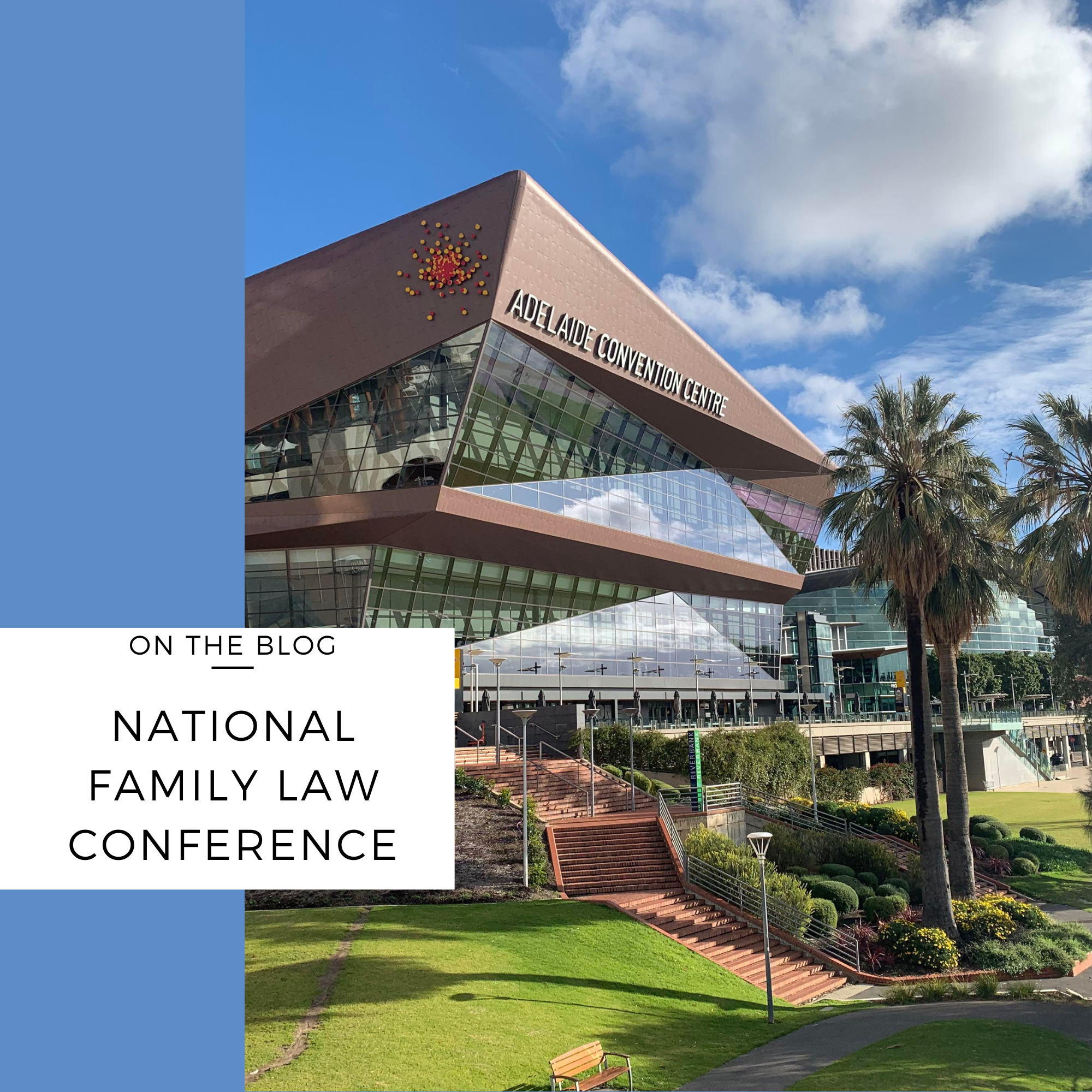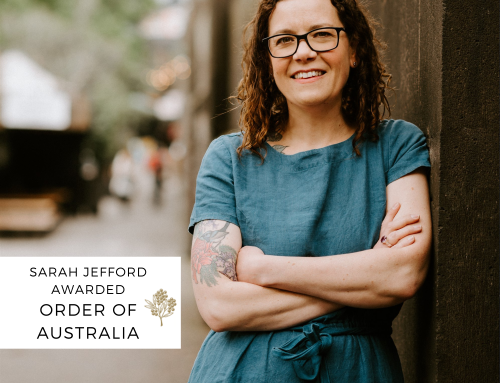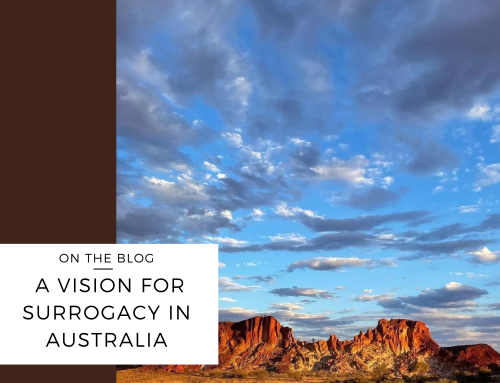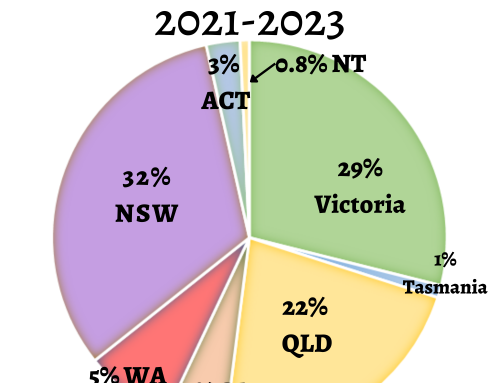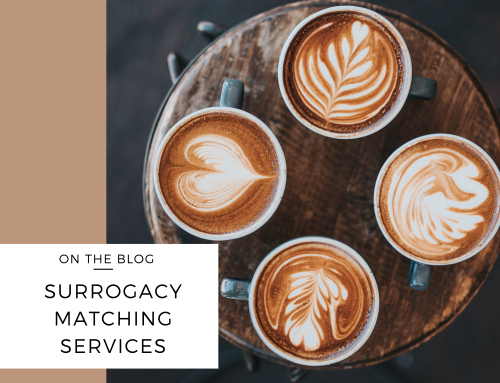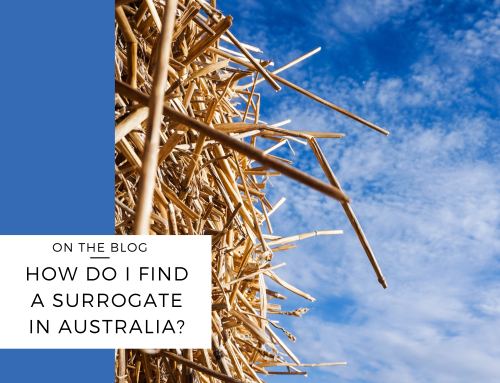I was delighted to present at the National Family Law Conference in Adelaide in August 2022, speaking about surrogacy and the best interests of the child alongside surrogate and lawyer Simone Cureton, counsellor Jessica Webster and dads through surrogacy Aaron and Jake, with chair Julie Redman. Simone and Aaron and Jake have all been on the Surrogacy Podcast and it was nice to finally see everyone in person after two years of lockdowns and border closures.
We had some requests for the presentation slides and I expect they will be made available through the conference organisers. I have also uploaded them here for anyone who would like to access them.
I shared some basic statistics for surrogacy arrangements, including stats from the 141 arrangements I assisted in 2021.
We had a lot of questions from the audience that we couldn’t cover in the hour, so I’ve provided some further discussion below.
Have there been many surrogacy cases with a subsequent family law dispute between the parties?
I am aware of a few cases that have ended up in the family law system, including Lamb & Shaw, and more recently Tickner & Rodda. Several other cases which involved ‘quasi-surrogacy’ arrangements have also required court intervention – these cases involve arrangements that do not meet the pre-conception requirements of a surrogacy arrangement. Ultimately if there is a dispute about the custody of the child or contact arrangements then it is determined on best interests of the child considerations.
What lessons can be learned from the matter of Tickner & Rodda?
I once had a theory that the shorter the relationship between the parties, the poorer the outcomes for all involved. That theory is always challenged by the amazing outcomes and relationships I see from short relationships and by the challenges faced by people who have known each other for many years. While I see some arrangements that raise concerns for me (so-called ‘red flags’), there are others that present as solid relationships that later have significant difficulties that even the psychologists would not have predicted – Tickner & Rodda I think is one such case. I think there are always extremes and sadly, and unfortunately, cases like Tickner & Rodda, and Lamb & Shaw, are the cases that make the headlines and causes us to consider what we could have done differently.
Concerns were raised in Tickner & Rodda about the fact that the parties were relative ‘strangers’ and had met online. I think that assessment is superficial. About a third of my clients meet their surrogate/intended parents online, including myself and the other members of the panel. I have seen sisters and long-time friends fall out during a surrogacy arrangement. Many people who meet online develop long-term, healthy and loving relationships and have really positive experiences. Surrogacy is complex and hard work, and that goes for all arrangements and all relationships.
I often see surrogacy teams full of baby lust and excitement of entering a surrogacy arrangement. It is not unusual for parties to see the counselling and legal advice as a ‘tick a box’ process which dampens their excitement, considered inconvenient but necessary. I also see parties who believe they know more than the professionals and dismissive of our expertise and experience. Sadly, as it is with life in general, there will always be the extremes and the rest of the community – and the child – pays for it. I remind myself that sometimes we cannot save people from themselves.
In traditional surrogacy arrangements where the surrogate continues a relationship with the family, are there any risks of a family maintenance claim in the event of the surrogate’s death?
A parentage order extinguishes the parentage of the birth parents, and there are specific provisions that refer to succession and intestacy -see for example, Section 39 of the Surrogacy Act 2010 (NSW). There is a risk that if a surrogate dies prior to the making of a parentage order, the estate may flow to the child. My advice is that all the parties should update their wills prior to entering the surrogacy arrangement.
As a surrogate, were you concerned that you would find it difficult to relinquish the parental role?
Simone and I both agreed that the relinquishment felt very natural and what we had always intended for the babies we carried. We conceived with the intention of handing over the baby to their intended parents. You can read more about how it feels to give away a baby, there are also lots of stories on the Surrogacy Podcast which confirms this experience.
When should we share the story of birth, donor conception and parentage with children born via surrogacy?
We know from donor-conceived people that it is best if they hear that story from a very early age, such that it is always part of their story and their identity. We know that holding the information back, keeping it secret, can cause harm to people who may find out later by accident which can be very traumatic. In the words of one donor-conceived person I have spoken to, ‘share the story with love and celebrate the connections.’ You can read more information about the experiences of donor-conceived people and advice from counsellors in this post.
Are there states, or processes, that you think best ensures the interests of the child and all involved?
I think the processes in Victoria and Western Australia, which involve an independent body reviewing the surrogacy arrangement and approving it prior to conception can provide a more robust process which protects everyone’s interests. In other states, the ‘approval’ lies with the counsellors and the IVF clinics, but neither is infallible nor robust enough to guarantee a good outcome. Counsellors often don’t feel like they should be the gatekeepers on a surrogacy arrangement. In cases I have been involved in which have raised concerns for myself and the counsellor, the parties have simply shopped around for another professional to tick the boxes and get them approved. The Patient Review Panel process in Victoria and the Reproductive Technology Council process in WA give power to an independent body to be that final gatekeeper and I think, while not perfect, are good processes to protect everyone involved.
Integrated birth certificates – are they ceremonial only?
Integrated birth certificates, which I mentioned during my presentation, involve a certificate that lists the birth parents, any donors, and the intended/social parents and provides a record for the person born to understand their story and the people involved in their birth, heritage and genetic history. They have been introduced in adoption matters in several states. If they are introduced in surrogacy matters, I would expect the certificate to be optional, ceremonial or symbolic only, and would not replace the birth certificate that would list the intended parents/adoptive parents. Rather, the latter would be used for identity purposes (applying for a drivers license for example) while the integrated birth certificate can be for the person born to keep for their own records.
There were some questions about sperm donor arrangements – you can read more information about donor agreements here.
International surrogacy was discussed briefly, and you can read more about the parentage orders and parenting orders here. My advice is that in some cases, the parties should consider entering a parenting plan to assist with confirming parental responsibility and parentage.
I spent lockdown writing a book, More Than Just a Baby: A Guide to Surrogacy for Intended Parents and Surrogates, the only guide to surrogacy in Australia.
You can read a broad overview for surrogacy in Australia and how it works.
You can find more information in the free Surrogacy Handbook, reading articles in the Blog, by listening to more episodes of the Surrogacy Podcast. For intended parents and surrogates, you can book in for a consult with me below, and check out the legal services I provide.

